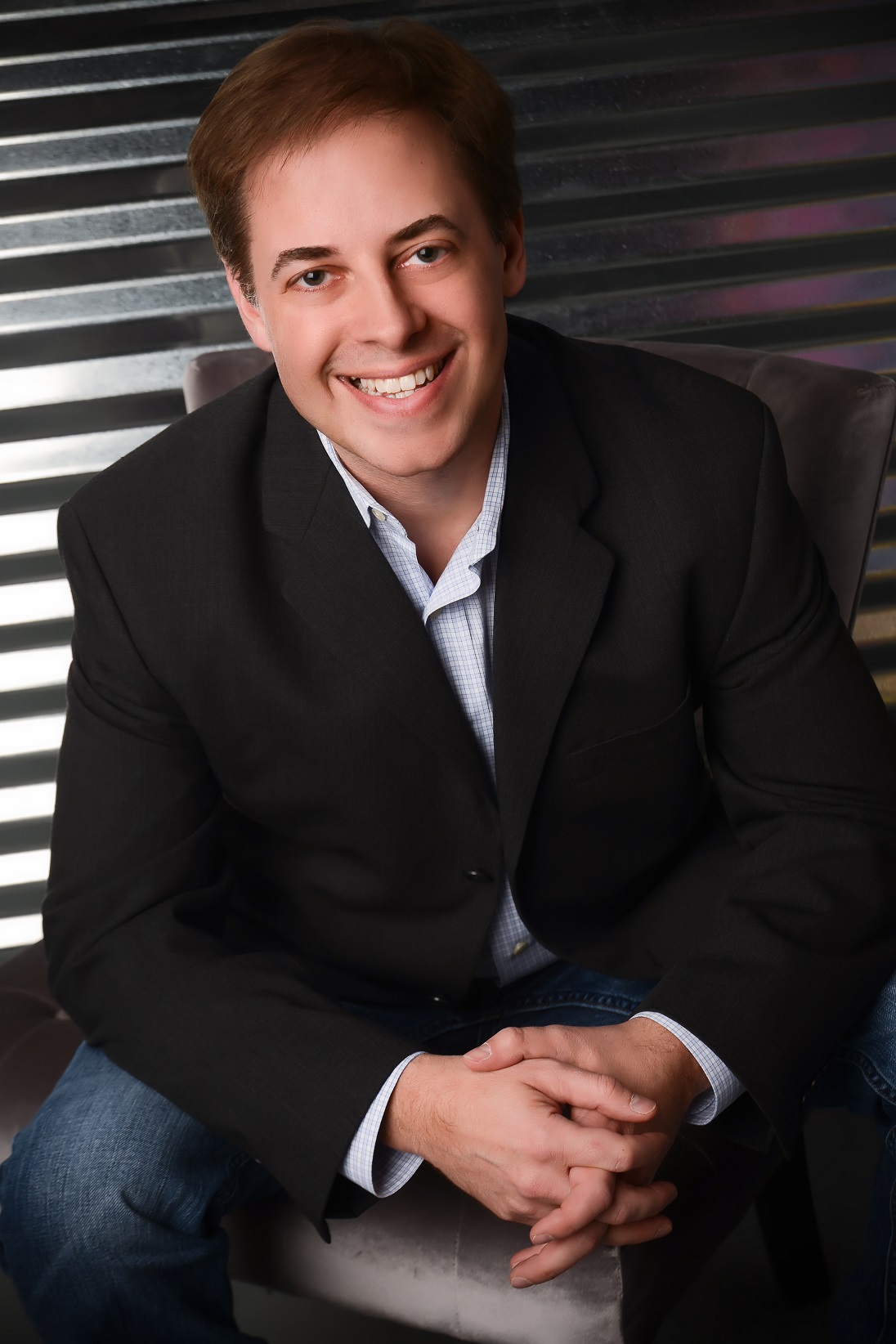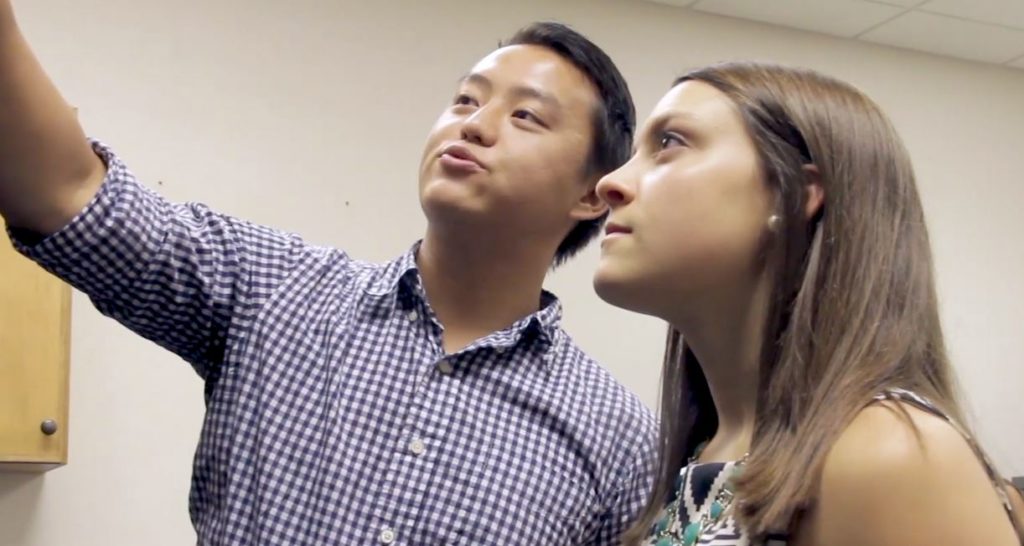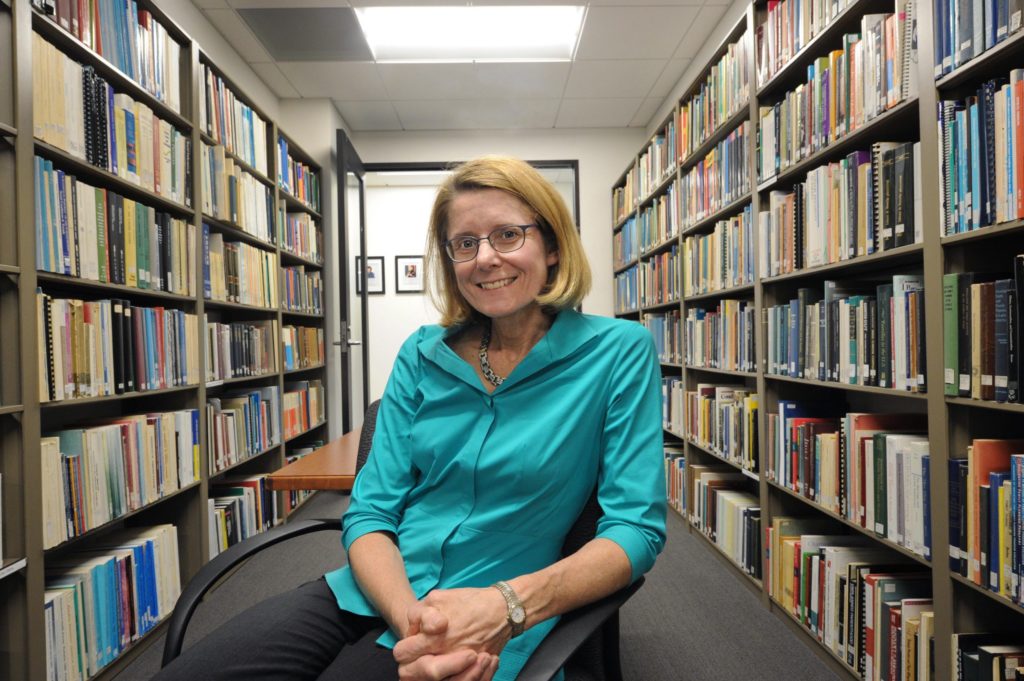
In this week’s Well Said podcast, Mitch Prinstein discusses his research on popularity, explains the different forms of popularity and why it doesn’t always pay to be the most popular.
John Van Seters Distinguished Professor of Psychology and Neuroscience Mitch Prinstein always found himself interested how popularity influences the way we see the world and have relationships with those around us.
Prinstein’s book, “Popular: Finding Happiness and Success in a World that Cares Too Much About the Wrong Kinds of Relationships” dives deeper into his research and was selected as the 2018 Summer Reading Program book for incoming first-year and transfer students. He will hold a lecture on his research on Aug. 21 at Memorial Hall at 6 p.m.
Well Said: Popularity Transcript
Mitch Prinstein: And they say that if you feel down and awkward and depressed and lonely, as many adolescents may at one time or another, the answer to your adolescent woes is to follow the instructions to get as many Instagram followers as possible. This is scary. This is concerning.
[MUSIC UNDER]
Host: You’re listening to Well Said, the official storytelling podcast at the University of North Carolina at Chapel Hill. Today, we’re talking with Mitch Prinstein, who is the John Van Seters Distinguished Professor of Psychology and Neuroscience. He’s going to give us some insight about the thing that has tormented many of us since middle school: being popular.
[MUSIC]
Host: When I say the word popular, what comes to mind? That table at lunch? The group of classmates who were just so cool that you wanted to be a part of it? The effects of popularity go well beyond our adolescent days, and this is exactly what Mitch has been researching beginning as early as his own middle school years.
Prinstein: Even on the playground, I remember wondering why are these kids attracting so much more attention than others? And why these other seemingly, you know, nice boys and girls, they can’t influence anybody or get anyone’s attention?” [cut] 00:56 When I was in graduate school, I started studying popularity as a factor that might be related to kids’ mental health. But the more I worked on it, the more I found that popularity is something that affects us well into adulthood and many of the same factors that we think about in school are still playing out even as we’re adults.
Host: As much as many of us hate to admit it, Mitch is right. While there may not be that same cool kids table at work in the break room, popularity is still something we feel as adults. But, how does a person become popular? What does it actually mean? Mitch determined there were two different ways to describe this phenomenon.
Prinstein: On the one hand, those people that we’ll call popular are the people that we really like. We like spending time with them, we trust them, we think that they make us feel good and make us feel included. But that’s very different than the kind of popularity that we think about immediately, which is often that high school image of who is cool and influential and powerful and very visible.
Host: Ultimately, there’s two different ways to be “popular,” no matter how old you are. Either by having a high status with a lot of power but not being liked very much, or being well-liked and not necessarily having as much influence over a group. These two different ways of understanding popularity root all the way back to how we acted in middle school or even before that, and Mitch realized that people strive to be popular in different ways.
Prinstein: High status, a really easy way to get there is to be aggressive and dominant to try and make others lower on the totem pole, so you get higher on the status hierarchy. But likeability is sometimes the more complex one. There are a lot of ways to be likable. Being funny, being kind, certainly those are some ways, but a lot of people make one big mistake and that is that they think that being likable means you have to be a pushover. You have to care about everyone and subjugate your own desires. That’s actually totally wrong.
[MUSIC]
Host: Mitch has found that the most likeable people are actually some of the best leaders, usually because they are great listeners.
Prinstein: They pay attention to what the group is interested in and they move the group without disrupting it. They help to find that general sense of community making everyone feel valued at once. And they lead in that way. Ironically, even though they’ve been quite influential in that circumstance, people then later regard them as being really likeable and someone they want to spend more time with. And that seems to be the secret.
Host: Because popularity is measured in such different ways, Mitch sought the root of this classification, and why it affects humans from such a young age all the way through their adult life. It turns out, surprisingly, that it’s likely in our DNA.
Prinstein: There seems to be a way in which our species was developed within a herd, within a group, and our position within that group was the difference between survival and an attack by a woolly mammoth. [cut] 3:39 So that’s actually what’s being found right now is that the moment you think that maybe you’re not very well liked and you might get kicked out of the group, your brain sends off signals and your DNA literally turns on and expresses in new ways to prepare you for injury [cut] but it has health implications. So, there may be a way that we are caring about popularity at a biological level in ways that we don’t even realize in the way we think about it.
Host: Because the desire to be popular or otherwise well-liked is hard-coded into our DNA, it’s no surprise that Mitch has uncovered some pretty incredible consequences of popularity, especially in our formative years. After the break, we’ll uncover what being one of the cool kids in school could actually do to the way we see the world.
[MUSIC]
Host: At UNC-Chapel Hill, Tar Heels have the opportunity to explore their passions through research, internships, clubs and organizations, and extraordinary collaboration with knowledgeable professors. Visit us online at unc.edu for an ever-changing stream of the stories that make Carolina so special.
[MUSIC]
Host: Before the break, Mitch explained the two types of popularity: power and likeability. These characteristics aren’t mutually exclusive, but stem from a deep-rooted fear of being kicked out of a social group, which is likely ingrained in our DNA. Does that sound familiar? Wanting to be a part of the popular crowd? Yeah, it sounds a lot like high school. As much as we hate to think it, these childhood experiences play a big part on how we see the world even as adults.
Prinstein: Whether we realize it or not the experiences that we had in the hallways of our high school are changing, literally, what we see with our eyes. And also how we interpret what we see.
Host: There have been studies analyzing exactly this, where those with a history of being popular or not were shown a video of people engaging in different social interactions. Eye-tracking systems monitored where each participant looked the most during each scene.
Prinstein: What they find is that if you’ve had experiences of being unpopular, you literally spend more time looking at the parts of the video and the parts of the scene where folks are rejecting one another or potentially being hostile to one another. It’s like we’re wearing unpopular-colored glasses that are filtering what we see in front of us. [cut] 7:21 If you think about that, if you think about what happened in that one video, and you extrapolate that to every social interaction you’ve had in your life, you can imagine that some people are walking around seeing the world as a more hostile, rejecting place than it really is. And on the flipside some people see it as much sunnier and welcoming than it really is.
Host: Our own levels of popularity in our developmental years have a serious effect on how we view the world as a whole, but it can also cause some other psychological consequences. Mitch learned that our popularity “status” can influence how we see ourselves in our current social circles. It can even affect our dating lives.
Prinstein: Well, if you are really unpopular then some say that you will have greater, what we call, rejection sensitivity. In an ambiguous situation, you are going to expect that you are about to be blown off and it will probably be because people are wanting to be mean to you. And that’s not what people think if they’ve experienced average or popular kind of backgrounds. If you’re high in the other type of popularity in status there’s research that says that you will constantly see the world through a measure of everyone else’s status and how you compare with them. You will always be seeking people who make your status increase.
[MUSIC UNDER]
Prinstein: One study was done and found that folks over 30 who were really popular or not when they were in middle school, they continue to date people based mostly on how much those folks had high status and when they were broken up with, they assume it was because they don’t have high status enough. So, they never really got over this impression that it’s our popularity, or at least that form of popularity, that continues to be important way after the rest of us think it was still important.
Host: These consequences of popularity in the developmental years aren’t necessarily the same for men and women growing up, either. Mitch learned that the relationship between likeability and status for men is fairly modest – you can be both likeable and high status at the same time. For women, it’s a different story.
Prinstein: Particularly in adolescence, there’s no relationship between likeability and status, which is to say that if you’re high in status, you might be one of the most hated people in your school – particularly from other females. And that’s pretty unfortunate because it sends a message about status to young girls that’s pretty harmful as those girls grow up to become powerful women. It kind of suggests that if you want to be high in status, you’re going to have to give up on having good relationships with others and that doesn’t have to be the case and it’s a shame that young girls seemingly get that message early on in some cases.
Host: Those messages can come from many sources for young women, and men too, but the explosion of social media use by this demographic can also take some of the responsibility. Now more than ever, we’re seeing a trend in advertisements focused on social media behavior – makeup companies selling products to take a better selfie, magazines writing cover stories about becoming social media famous.
Prinstein: And they say that if you feel down and awkward and depressed and lonely, as many adolescents may at one time or another, the answer to your adolescent woes is to follow the instructions to get as many Instagram followers as possible. This is scary. This is concerning.
[MUSIC]
Prinstein: And I don’t think social media is bad. I think there’s actually a lot of great things on social media, but this aspect of social media is something we should be really concerned about because let’s face it: while teens are focusing on it really overtly, we all know those adults that do some of that stuff too and I think it’s not just kids. We’re all susceptible to thinking differently about the world now.
Host: If we actually did take the time to wake up and think about the digital world we live in, it could be a little overwhelming. We have access to hundreds of news stories, celebrity tweets, and photos of dogs from our high school acquaintances right in our pocket. It’s no wonder Mitch has been so intrigued by the way we view the world based on our popularity.
Prinstein: Our current celebrity worship and our reality TV and social media – all things fun and fine – they all reflect, they’re symptoms of a much larger issue and that is that our society has completely turned into a status obsessed one. And I think the first step is for us to realize that and do things that reward people around us that are likable, even if they don’t have a lot of Twitter followers and they don’t have fancy positions. This is a weird world we’ve stumbled into and I think it’s time for us to wake up and think about it.
[MUSIC]
Host: Thanks so much for listening to this episode of Well Said, the official storytelling podcast from the University of North Carolina at Chapel Hill. If you’d like to learn more about professor Mitch Prinstein and his research on popularity, visit mitch.web.unc.edu. While there, you can also learn more about his book, Popular, which has been selected as the summer reading book for incoming first-year and transfer students.
Host: Well Said can be found online at unc.edu and wherever you get your podcasts. We’d love if you subscribed to the show, and left us a review! Have a great


